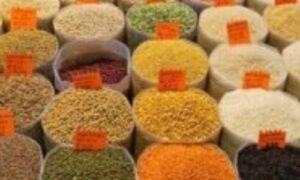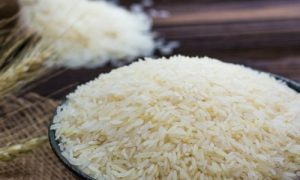‘Herbicide-tolerant basmati not farmer-friendly’

The new herbicide-tolerant (HT) basmati rice variety released by IARI has faced backlash from scientists and environmentalists. Critics argue that while IARI claims the variety is not genetically modified and benefits direct-seeded rice (DSR) by saving water, it could reduce genetic diversity and increase costs due to reliance on multiple herbicides. Former ICAR-IARI scientist Virender Singh Lather warned of higher cultivation costs and potential threats to food security. Environmentalist Aruna Rodrigues raised concerns about potential contamination affecting India’s export markets.
Bathinda: More scientists and environmentalists came forward in criticising the new herbicide-tolerant (HT) variety of basmati, released for commercial cultivation by Indian Agriculture Research Institute (IARI) nearly two months ago.IARI has claimed that the variety has not been genetically modified (GM) and is beneficial for direct-seeded rice (DSR) technique, hence saving water. Agri scientists said the variety could also lead to a loss of genetic diversity in Indian rice and increase the use of multiple herbicides for controlling different types of weeds, hence increasing cultivation cost. This could be particularly challenging for small farmers, they say.Virender Singh Lather, a former principal scientist from ICAR-IARI, said HT rice variety is not farmer-friendly and is a threat to national food security. “This technology will raise cultivation costs by monopolising seed-agrochemical market. There is no need of such technology to help DSR as it can be managed using climatic factors by preponement of date of sowing between May 15 and June 10. Weed problems appear when humidity is high, which happens after June 10 as monsoon approaches,” said Lather.Environmentalist Aruna Rodrigues, who has filed a PIL for a moratorium on GE crops, on Monday wrote to ICAR joint director (extension) Rabindra Padaria. “…This step is a potential threat to India’s export markets, which are based on organic standards, along with the necessary co-surety that India’s foods and farms are not contaminated by herbicides, a consequence of using HT crops,” wrote Rodridgues.We also published the following articles recently
Agri scientists, environmentalists oppose Ht basmati rice varieties, claim beneficial for crop grown through DSR techniqueLearn about the controversy surrounding the new Herbicide tolerant basmati rice variety released for commercial cultivation in India. Agri scientists and environmentalists are expressing concerns about its impact on genetic diversity and cultivation costs for farmers.
Prime Minister Modi to release 100 new seed varieties in Sept, Chouhan pitches for model farm for small and marginal farmersDiscover the latest agricultural innovations as PM Modi plans to release 100 new seed varieties and farm technologies. Learn how these advancements aim to benefit small farmers and boost productivity. Read more here.
Cultivating An Inner Flow Of Calmness And SerenityLearn the importance of inner searching and self-discovery in this insightful article. Discover how a seeker differs from an unconscious person and the wisdom shared by Buddha. Join Swami Sukhabodhananda’s Guru Poornima Online Utsav from July 17-21 for more enlightening teachings.
About the Author Neel Kamal
Neel Kamal writes about sustainable agriculture, environment, climate change for The Times of India. His incisive and comprehensive reporting about over a year-long farmers’ struggle against farm laws at the borders of the national capital won laurels. He is an alumunus of Chandigarh College of Engineering and Technology.















